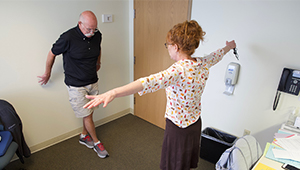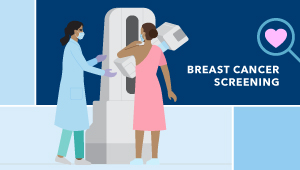Pamela A. Shaw, PhD, MS
Biography
Pamela Shaw, PhD, MS, is a biostatistician with expertise in clinical trials, design and analysis of complex epidemiologic studies, measurement error, and survival analysis. Dr. Shaw’s current statistical research includes a focus on methodology to correct for covariate and outcome measurement error, with application to studies reliant on electronic health records and large observational cohort studies. She is currently applying these methods to study the relationship between maternal weight trajectories during pregnancy and early childhood outcomes, as well as to identify risk factors for poor outcomes in several cohorts of patients with HIV/AIDS.
Dr. Shaw is also involved in studies of aging, behavioral intervention studies, and the use of biomarkers to calibrate self-reported nutritional intake and physical activity. She is co-investigator in a clinical trial that will assess whether an anti-inflammatory diet can improve cognition in a middle-aged (40- to 65-year-old) multi-ethnic urban population relative to a usual diet. She is an investigator for the Adult Changes in Thought (ACT) study, a joint project between Kaiser Permanente Washington Health Research Institute and the University of Washington that focuses on risk factors for dementia, including Alzheimer's disease, and declines in memory and thinking. For this study, she is collaborating with other ACT investigators to understand the best way to quantify patterns of physical activity in the 24-hour day and its association with health outcomes.
Before joining KPWHRI as a senior investigator, Dr. Shaw was an associate professor of biostatistics in the University of Pennsylvania Perelman School of Medicine. At UPenn she taught in the biostatistics graduate program and was the lead statistician for several early phase clinical trials, including studies of CART19, a novel CAR T cell immune therapy for the treatment of acute lymphocytic leukemia and other blood cancers, as well as clinical trials that evaluated the efficacy of behavioral economic interventions to increase healthy behaviors. She co-authored the textbook Essentials of Probability Theory for Statisticians (CRC Press 2016).
Prior to UPenn, she was a mathematical statistician in the Biostatistics Research Branch at the National Institute of Allergy and Infectious Diseases, where she was lead statistician for several clinical and basic science studies of human infectious and immunologic disease.
Dr. Shaw is an adjunct associate professor in the Department of Biostatistics, Epidemiology and Informatics at the University of Pennsylvania and an affiliate professor in the Department of Biology and Wildlife at the University of Alaska Fairbanks. She is associate editor for Statistics in Medicine. She serves as a member for several clinical trial data safety monitoring boards and as a member of the Bone, Reproductive and Urologic Drugs Advisory Committee for the U.S. Food and Drug Administration. She is a member of the International Biometric Society and fellow of the American Statistical Association.
She completed a Bachelor of Arts in mathematics and French at Grinnell College, and a Master of Science in mathematics and a doctorate in biostatistics at the University of Washington.
Areas of research focus
Recent Publications
Boe LA, Shaw PA, Midthune D, Gustafson P, Kipnis V, Park E, Sotres-Alvarez D, Freedman L, Of The Stratos Initiative OBOTMEAMTGT Issues in Implementing Regression Calibration Analyses 2023 Aug 4;192(8):1406-1414. doi: 10.1093/aje/kwad098. Epub 2023-04-21. PubMed
Boe LA, Mossavar-Rahmani Y, Sotres-Alvarez D, Daviglus ML, Durazo-Arvizu RA, Thyagarajan B, Kaplan RC, Shaw PA Nutritional blood concentration biomarkers in the Hispanic Community Health Study/Study of Latinos: Measurement characteristics and power 2023 Aug 4;192(8):1288-1303. doi: 10.1093/aje/kwad109. Epub 2023-04-27. PubMed
Boe LA, Shaw PA An augmented likelihood approach for the Cox proportional hazards model with interval-censored auxiliary and validated outcome data-with application to the Hispanic Community Health Study/Study of Latinos 2023 Aug;32(8):1588-1603. doi: 10.1177/09622802231181233. Epub 2023-06-29. PubMed
Wu Y, Rosenberg DE, Greenwood-Hickman MA, McCurry SM, Proust-Lima C, Nelson JC, Crane PK, LaCroix AZ, Larson EB, Shaw PA Analysis of the 24-h activity cycle: An illustration examining the association with cognitive function in the Adult Changes in Thought study 2023 Mar 27;14:1083344. doi: 10.3389/fpsyg.2023.1083344. Epub 2023-03-27. PubMed
Mitchell CM, Oxtoby LE, Shaw PA, Budge SM, Wooller MJ, Cabeza de Baca T, Krakoff J, Votruba S, O'Brien DM Carbon Isotope Ratios of Plasma and RBC Fatty Acids Identify Meat Consumers in a 12-Week Inpatient Feeding Study of 32 Men 2023 Jan 14;152(12):2847-2855. doi: 10.1093/jn/nxac213. PubMed
Healthy findings blog

HIV/AIDS research advances through Pamela Shaw's work
Shaw's project to reduce the impact of errors in data was just honored with an NIH MERIT award.
Research

Autopsy study links BP drugs to possible brain benefits
Research supports theory that some blood pressure medications may provide extra protection against dementia.
New funding

Grant of over $55M to boost Alzheimer’s, dementia study
Kaiser Permanente Washington will co-lead an expanded ACT Program to better understand the aging brain.
Research

Roundup of 3 recent studies on breast cancer screening
New research spotlights overdiagnosis, MRI before surgery, and a new way of predicting breast cancer risk



